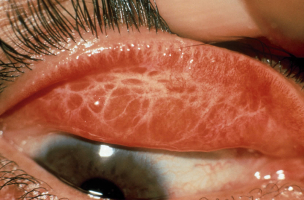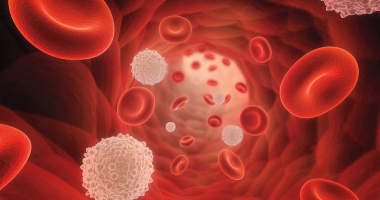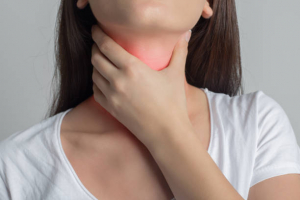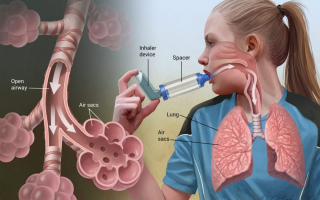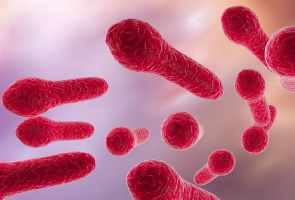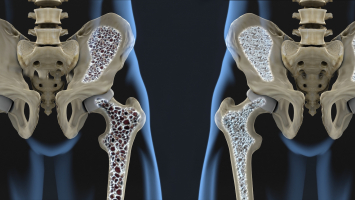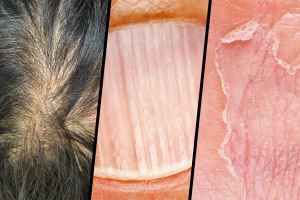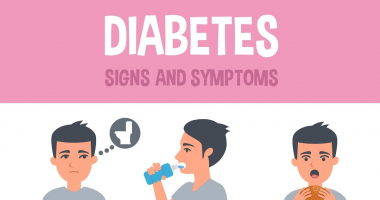Top 10 Signs and Symptoms That You're in Ketosis
The ketogenic diet is a popular, effective way to lose weight and improve your health. The diet aims to induce ketosis to burn more body fat. People can ... read more...determine whether or not the diet is effective by knowing the symptoms of ketosis. Below are some of the Signs and Symptoms That You're In Ketosis!
-
Some people claim that experiencing ketosis leaves them with a metallic taste in their mouth and a smell that's sweet, fruity or similar to nail polish remover. This is caused by the chemicals your body produces while it is in ketosis.
Increased ketone levels are to blame for this. Acetone, a ketone that exits through breath and urine, is specifically to blame. Even if this breath might not be the best for your social life, it might be a good indicator of your diet. Many people on ketogenic diets use sugar-free gum or many regular brushes of their teeth to address the problem. Check the label for carbs if you're using gum or other substitutes like sugar-free beverages. These could lower your ketone levels and increase blood sugar.

Bad breath 
Bad breath -
Both ketogenic diets and normal low diets are quite efficient for shedding pounds. Numerous research on weight reduction has demonstrated that following a ketogenic diet will probably result in both short- and long-term weight loss.
Fast weight loss can occur during the first week. Although some people mistakenly think they are losing fat, what is really being lost is water and stored carbs. When you follow a ketogenic diet low in carbs, your body quickly uses up the carbs stored as glycogen in your muscles and liver. As soon as your glycogen reserves are gone, you start burning fat. So remember that as long as you follow the diet and maintain a calorie deficit, you should continue to lose body fat gradually after the first quick loss of water weight.

Weight loss 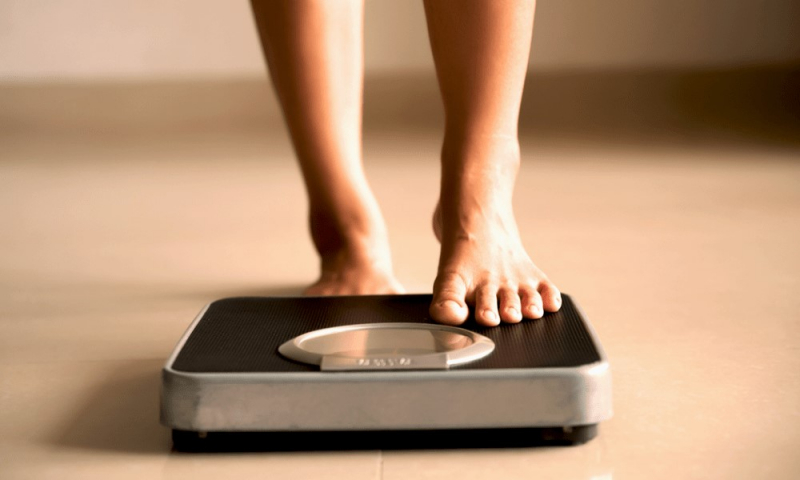
Weight loss -
An increase in ketones and a reduction in blood sugar levels are two characteristics of a ketogenic diet. You will begin to use fat and ketones as your primary energy sources as you remain on a ketogenic diet.
Using a specialized meter to monitor your blood ketone levels is the most reliable and accurate way to determine whether you're in ketosis. Calculating the amount of beta-hydroxybutyrate (BHB) in your blood determines your ketone levels. One of the main ketones found in the bloodstream is this one. Some experts on the ketogenic diet define nutritional ketosis as blood ketones between 0.5 and 3.0 mmol/L. So the most accurate testing method, which is frequently used in research studies, is measuring the number of ketones in your blood.

Increased ketones in the blood 
Increased ketones in the blood -
A breath analyzer is a different way of determining blood ketone levels. It monitors acetone, one of the three main ketones seen in your blood when you are in ketosis.
Because more acetone leaves the body when you are in nutritional ketosis, this gives you an idea of your body’s ketone levels. Although less accurate than the blood monitor method, the use of acetone breath analyzers has been demonstrated to be quite reliable. Another effective method is to use specific indicator strips to regularly check for ketones in your urine. These can be a simple and affordable way to check your ketone levels each day. They also measure ketone excretion through the urine. However, they’re not considered very reliable.

Increased ketones in the breath or urine 
Increased ketones in the breath or urine -
One of the best-known side effects of ketosis is the loss of appetite. The causes of this are still being studied thoroughly. However, it's been believed that this decrease in appetite may be brought on by increasing your consumption of protein and vegetables as well as alterations to your body's hormones that control hunger.
Adiponectin hormone controls blood sugar levels. This hormone would make you feel more hungry if its levels were higher. But during ketosis, the amount of this hormone dramatically decreases, which reduces hunger. If you feel full and don’t need to eat as often as before, then you may be in ketosis. But if you're experiencing drastic side effects of appetite suppression after several weeks, it may be time to consult a nutrition professional.

Appetite suppression 
Appetite suppression -
People who initially begin an extremely low-carb diet frequently complain of brain fog, fatigue, and feeling sick. This is known as the "keto flu" or the "low carb flu". However, long-term ketogenic dieters frequently report having greater energy and focus.
Your body has to become used to burning more fat for energy when you start a low-carb diet. A significant part of the brain shifts to burning ketones rather than glucose when you enter ketosis. Ketones are an extremely potent fuel source for your brain. They have even passed clinical studies to treat conditions and disorders of the brain including concussion and memory loss. Therefore, it should come as no surprise that long-term ketogenic dieters frequently experience increased mental sharpness.

Increased focus and energy 
Increased focus and energy -
One of the biggest challenges for new dieters might be taking the initial transition to a ketogenic diet. Weakness and fatigue are two well-known side effects.
These frequently lead to people quitting the diet before they reach complete ketosis and start to experience many of the long-term benefits. These negative consequences are common. Your body is forced to adjust to a different fuel system after functioning for many years that heavily relies on carbohydrates. As you may expect, this transition doesn't take place quickly. You normally need 7 to 30 days to get complete ketosis. You might want to take electrolyte supplements to lessen tiredness during this transition. Try to consume 1,000 mg of potassium and 300 mg of magnesium daily while adding these supplements.

Short-term fatigue 
Short-term fatigue -
As was already said, cutting off carbs might first make you feel fatigued. This involves a temporary decrease in exercise performance. Decreased muscle glycogen levels, the main and most effective fuel source for all types of high-intensity exercise, are the main contributor to it.
Many people on ketogenic diets say that their performance returns to normal after a few weeks. A ketogenic diet may even be beneficial in some ultra-endurance events and sports. Additionally, there are other benefits, primary among them an improved ability to burn more fat when exercising. According to one well-known research, athletes who switched to a ketogenic diet burnt up to 230% more fat during exercise than athletes who weren't on this diet.

Short-term decreases in performance 
Short-term decreases in performance -
A ketogenic diet includes a dramatic change in the types of food you consume. When someone starts a new diet, their body may temporarily experience diarrhea or other gastrointestinal (GI) problems.
In the beginning, digestive issues including constipation and diarrhea are frequent side effects. Some of these problems will go away after the adjustment period, but it would be wise to watch out for certain foods that might be worsening your digestive problems. Additionally, be sure to consume a lot of fiber-rich low-carb vegetables, which are low in carbs. Most important, avoid the mistake of eating a diet that lacks diversity, which may increase your risk of digestive issues and nutrient deficiencies.
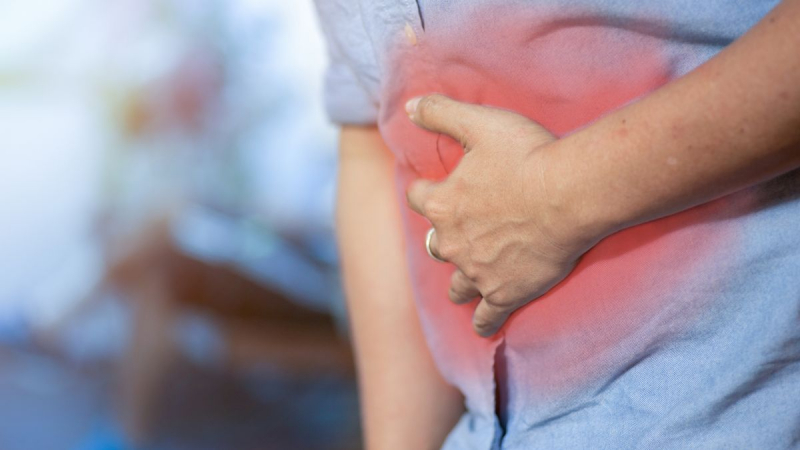
Digestive issues 
Digestive issues -
Sleep is a major problem for many people on a ketogenic diet, especially at first. When they first dramatically cut their carb intake, many people report experiencing insomnia or nighttime awakenings.
Insomnia caused by the keto diet is attributed to low levels of serotonin and melatonin, as well as higher than normal energy levels. However, this often gets better after a few weeks. Many long-term followers of the ketogenic diet claim that after adjusting to the diet, their quality of sleep has improved. According to one research by the International League Against Epilepsy, while the ketogenic diet may shorten the amount of time spent sleeping overall, it might enhance sleep quality by increasing REM sleep.

Insomnia 
Insomnia













